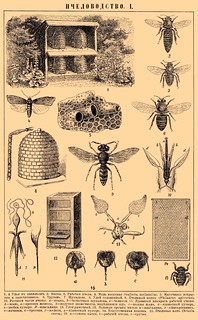
.
By Anteater
The idea of an emergent intelligence formed by a group of less intelligent members working in an apparently coordinated way has been around for a long time, long before Wikipedia. We all know about ants, and about new categories like “hive” or “colony” formed from the simpler category of “bug”, with a level of complexity beyond the complexity of any of its members. The army of bugs has no commander, no project managers or design teams, yet they form themselves into a highly complex organisation building large complex structures.
The analogy between insect hives and networked computers has long impressed visionaries like Kevin Kelly, who has hailed the Internet as a new era in the history of humankind. Inert objects were being animated with “tiny slivers of intelligence”, linking individual minds into a globally interconnected single thing. “This will be recognized as the largest, most complex, and most surprising event on the planet”.
“Weaving nerves out of glass and radio waves, our species began wiring up all regions, all processes, all facts and notions into a grand network. From this embryonic neural net was born a collaborative interface for our civilization, a sensing, cognitive device with power that exceeded any previous invention.”
This is of course nonsense, but then along came Wikipedia, which seemed to prove the nonsense, and also seemed to show that a certain long-accepted way of producing knowledge was without value. The accepted way was to assemble a bunch of credentialled old farts, so-called “experts”, who would write about the stuff they knew on compressed bits of dead tree. Other experts called “peer reviewers” would check this work and correct it where necessary. Then a publisher would take this as a final version and
…continue reading The Sum of the Parts
